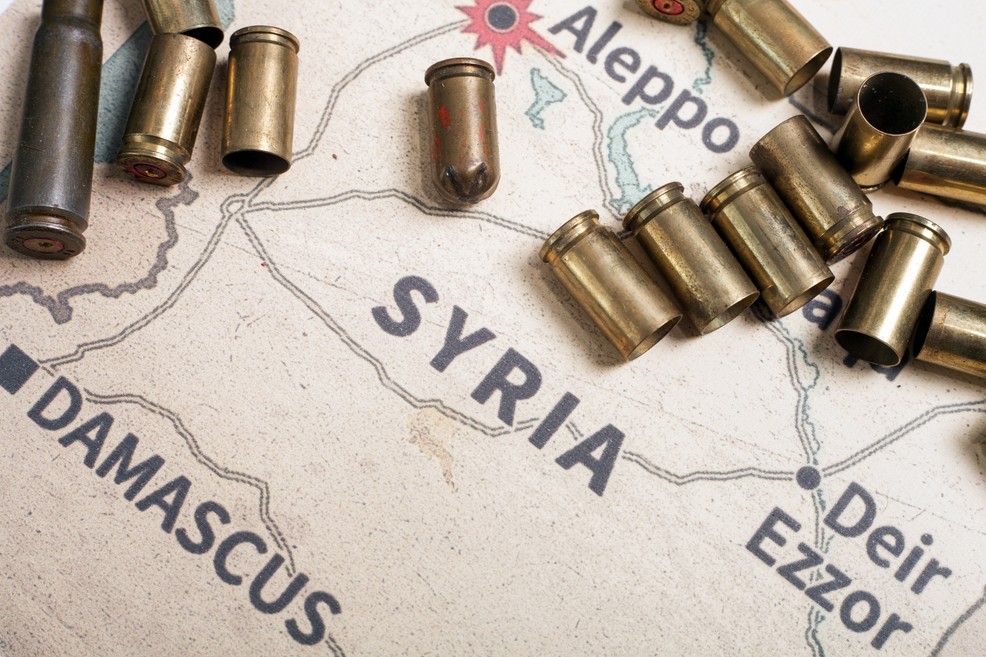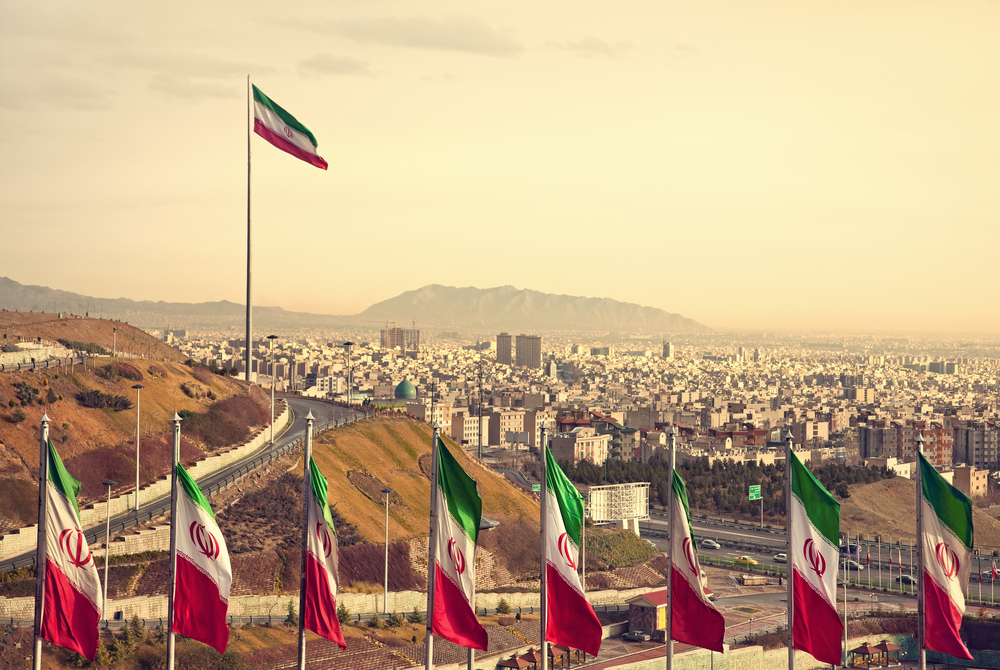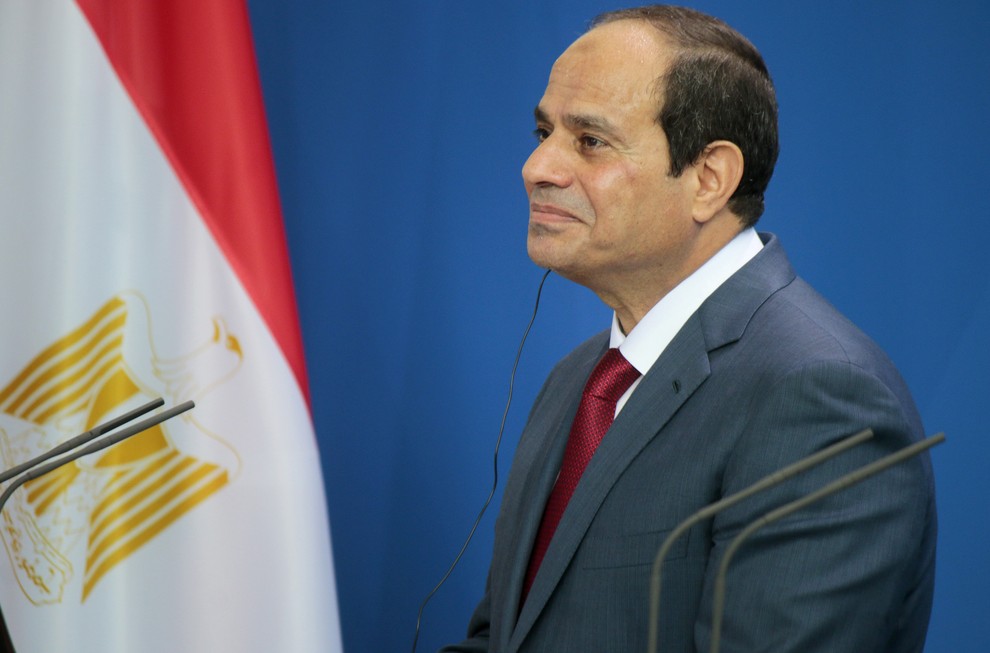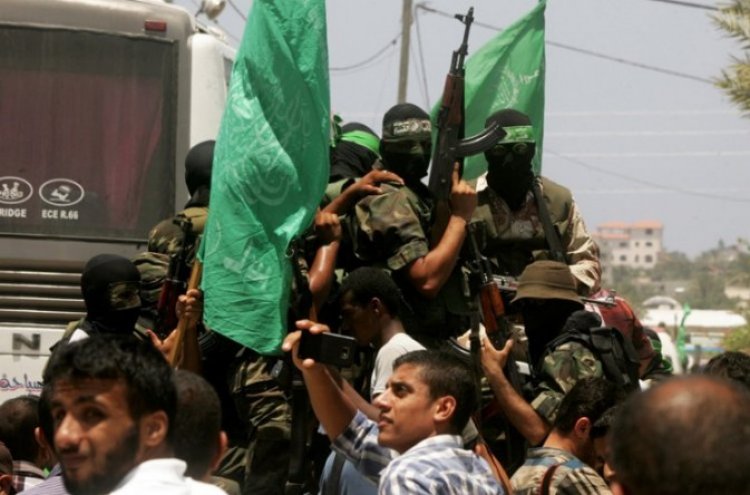The Hidden Hand Keeps Israel’s Enemies at Bay
A closer look at the dynamics beyond Israel’s borders reveals how the turmoil among its enemies brings unexpected advantages. This analysis explores how the disarray among Israel's adversaries could connect to the future redemption.
- נעמה גרין
- פורסם י"ג אייר התשע"ז
 (Photo: shutterstock)
(Photo: shutterstock) #VALUE!
![(Photo: shutterstock)]() (Photo: shutterstock)
(Photo: shutterstock)![(Photo: shutterstock)]() (Photo: shutterstock)
(Photo: shutterstock)![(Photo: shutterstock)]() (Photo: shutterstock)
(Photo: shutterstock)![Hamas Militants in Gaza]() Hamas Militants in Gaza
Hamas Militants in Gaza
A remarkable phenomenon unfolds: a captivating discussion held by 'Yated' with Prof. Yoram Meital, an Egypt expert from Ben-Gurion University, Dr. Mordechai Kedar from the Middle East Department at Bar-Ilan University, and Lt. Col. Moshe Marzouk from the Counter-Terrorism Policy Institute, highlights how citizens of Israel live amidst miracles.
The article begins with a fanciful scenario: "Millions of our neighbors to the east, north, and south decide one bright morning to visit their neighbors in the Holy Land.
Empty-handed, without arms, they besiege Israel's borders and flood in without knocking. The forward posts hesitate to fire on families and children without ammunition or protection. Sunnis, Shiites, Hezbollah, ISIS, and the myriad militias and phalanges plaguing the region, inundate like a relentless torrent. Like a swarm of locusts, they overrun the land, its cities, and fields, penetrating into the Galilee, the hill country's settlements, the Shefelah, the Negev, and Jerusalem.
While this scenario is absurdly hypothetical, it indeed haunts policymakers. In their nightmare visions, heavily armed and trained Arab and Iranian armies, fueled by hatred for Israel, are omnipresent.
Yet, currently, for an extended interim of 69 years, our adversaries in the Arab states are embroiled in bloody skirmishes, round after round of vengeful clashes, needless wars, and unending conflicts. In such a landscape, Israel becomes a secondary concern, akin to “just let us finish with the Shiites, then it’s Israel’s turn.” Menachem Begin aptly described this during the Iran-Iraq war when he said: "We wish success to both sides...".
And then, the Israeli Prime Minister, dazzled by self-reliance, stands on the Independence Day podium repeating speeches about "our strength lies in our independence, our might," when everyone knows our fate isn't in our hands. Only the situation of "I will stir Egyptians against Egyptians" keeps hostile barrels turned away from us.
"The strategic situation of Israel improved dramatically thanks to the Arab Spring," Dr. Mordechai Kedar tells Yated. "Some Arabs are certain that Israel orchestrated it all, creating chaos and instigating coups, simply because it's the main beneficiary."
They're not wrong. An unseen hand, not Israel's, stirs, confuses, low and high alike. Lebanon, embroiled in internal wars among militias, phealanges, Hezbollah, and the army—where yesterday's sworn enemy is today's embraced friend. Syria, bleeding for over six years, its sword against brother, a labyrinth of interests spiraling into chaos. Egypt, fighting Hamas on one hand and the Sinai’s Salafis on the other. The poisonous Islamic State tentacles reaching Europe. Many other states sit on an ethnic volcano, with leaders fully aware of living on borrowed time. One day that lava will explode, in Jordan, where most residents are Palestinian, and in Iran, where minorities pose a demographic time bomb.
Syria: "No More a Country Named Syria
"Take Syria, for example," says Dr. Kedar. "A summary of over six years of war shows a bloody tally of hundreds of thousands dead, millions of refugees, a country scorched and ruined. Assad masquerades as Syria’s president, though cartographers must update their maps: there’s no longer a country named Syria."
Syria is fragmented: the north is under Kurdish control, the west under Assad’s regime, and the east and north are under ISIS. The ‘who’s against whom’ map in Syria is hard to draw, with a collage of forces fighting Assad, ISIS, rebels—far from united, various puzzling organizations fighting among themselves, like Jabhat Fatah al-Sham. It’s essentially a fracas where everyone fights everyone. Not to forget—Turkey has its hand in the mix, invading and capturing territories.
 (Photo: shutterstock)
(Photo: shutterstock)On one side, Russia and Iran plus Hezbollah stand by Assad, yet it’s a cynical game, as their primary focus lies on their interests.
Syria, which for years posed an existential threat to Israel, obsessively stockpiling missiles armed with chemical and biological warheads, has practically ceased to exist. "There’s no apparent end to the conflict in Syria," Dr. Kedar notes, "it might drag on for years. It’s harsh and inappropriate to say Israel benefits from the war in Syria: a gruesome reality where children are butchered doesn’t smile upon anyone, not even Israel. However, we can state that the threat from Syria, as a state entity, is entirely wiped out." Looking ahead, Kedar predicts Syria will become a loose federation divided into regions.
Iran: Two Internal Wars Within Iran: In the Northwest and Southeast
There’s another side. Iran, active in Syria, has suddenly drawn closer to our direction. "Iran has a strong presence in Syria," Dr. Kedar says. "Today, they have tanks. Tomorrow, they’ll have missiles. If Iran transfers missiles to Hezbollah, they can bring missiles for themselves too." Nonetheless, Iran is mired in its problems, Dr. Kedar believes, with Iran's time ticking.
 (Photo: shutterstock)
(Photo: shutterstock)"Currently, two internal wars rage within Iran," Kedar describes, "the regime battles the Kurds in the northwest and simultaneously combats the Baluchis in the southeast. Additionally, a large Sunni Arab minority in Khuzestan in southwest Iran is agitating to free itself from Iranian rule. Back in the sixties, Gamal Abdul Nasser, who led Arab nationalism, declared that Arabs of Khuzestan must be liberated from Persian domination.
"One day," experts claim," and it’s much closer than you imagine, and the Iranian powderkeg explodes, leading Iran into chaos.
Hezbollah: Licking Its Wounds From Syrian Losses
The third side, whose threat is visible and accessible, is Hezbollah. On the one hand, the organization licks its wounds from its fighters’ losses in the Syrian arena. On the other hand, the group has grown stronger, gained substantial military experience and deep knowledge in combat doctrines, becoming a formidable army.
Currently, the fighting in Syria occupies Hezbollah entirely, and its fighters are ensnared in the Syrian quagmire. Alongside this, Nasrallah is aware of the heightened anxiety within the Lebanese political echelon from the outbreak of war in the near future. The scenes of destruction from the Second Lebanon War are still etched in Lebanese memory.
Egypt: A Common Interest With Israel Against Hamas and ISIS in Sinai
Egypt once led the Arab world, spearheading the fight against Israel. Just tell that to al-Sisi, whose cooperation with Israel is flourishing as never before. "Even in the early years of the peace agreement between Israel and Egypt, bilateral relations weren’t this intense," says Prof. Yoram Meital, an Egypt expert from Ben-Gurion University in the Negev.
Three reasons tightened relations between al-Sisi's Egypt and Israel. It all started with Morsi’s rise, which was viewed with enormous concern in Israel. The peace treaty between Israel and Egypt was seen by all parties in Israel, regardless of ideological and political positions, as crucial from all aspects. Newspaper headlines from Morsi’s rise era warned that annulling the peace treaty between Israel and Egypt was a matter of time. It didn’t happen, but the fears remained.
"Then, when al-Sisi led the army to oust Morsi, it was received in Israel as a salvation from heaven," states Prof. Meital. "Israel played a significant role in establishing al-Sisi’s status worldwide, ensuring his legitimacy. Israel was the only non-Arab state that supported him. Netanyahu even talked with Congress members, holding motivation talks to dissuade them from making decisions against al-Sisi’s new regime.
 (Photo: shutterstock)
(Photo: shutterstock)Al-Sisi fights Hamas, which he despises as a Muslim Brotherhood offshoot. He waged a relentless battle against them, even more than Mubarak. About two years ago, a local Egyptian court declared Hamas’s military wing a terrorist organization.
Al-Sisi's main front operates in Sinai, where he conducts a deadly war against ISIS groups. Al-Sisi views them as a significant threat to his regime, striving to annihilate them with all his might. "We’ll eliminate al-Sisi and obliterate his regime," say ISIS members. "And right afterward, we’ll turn to the primary target of every faithful Muslim: the State of Israel and infidels."
"Al-Sisi does our job in Sinai," a senior security official tells Yated. "And equally, Israel helps him. Let’s define it cautiously: occasionally, unidentified aircraft pass over Sinai. They fire and hit targets, and the Egyptians overlook them. "Between Israel and Egypt, there’s no great love, of course. For Egypt, it’s about survival interests. When a leader like al-Sisi feels cornered, he seeks a partner with a shared interest, and Israel is a trustworthy ally."
The big miracle is that the terrorist organizations in Sinai and Gaza are bitter enemies. An eternal enmity burns between ISIS and Hamas. Abu Hajer al-Hashimi, the leader of the Islamic State in Sinai, labeled Hamas operatives "infidels." ISIS militants block trade from Sinai to Gaza via still-active tunnels. In response, Hamas arrests Islamic State supporters in its territories.
Hamas and Fatah: Tearing Each Other Apart In Front of Cameras
A real war rages between Fatah—a secular national organization, and Hamas—a group driven by religious zeal. The conflict spans decades since Hamas was founded in 1987, but recently, it has worsened, escalating to a flare-up.
Two million Gaza residents dwell in darkness. Qatar announced it would cease emergency aid intended to fund electricity purchases from Israel. Abu Mazen declared the authority would continue to fund electricity purchases provided that Hamas pays taxes, a condition Hamas can’t meet as it triples the electricity cost.
This current round’s trigger is Trump’s reign, wanting to solve the Israeli-Palestinian conflict. "Abu Mazen flexes his muscles," Lt. Col. Moshe Marzouk from the Counter-Terrorism Policy Institute in Herzliya tells Yated. "He knows Trump will directly ask: You’re the leader of whom? How can you define yourself as the leader of the Palestinians if Hamas doesn’t recognize your rule in the strip?"
This explains the change in the authority’s terminology: calling Hamas a group that enacted a coup. This term was never used before by the authority.
Punishing Hamas is part of Abu Mazen's complex political maneuver, aiming to convince Trump that he's fighting terrorism decisively, while Netanyahu misguides the world by declaring there's no Palestinian partner for peace negotiations.
 Hamas Militants in Gaza
Hamas Militants in GazaHamas is under pressure, its leaders realize Trump intends to proceed with the PLO and create a Palestinian state in the West Bank. In such a scenario, the PLO would govern the West Bank, and Hamas would be left with a state of perpetual troubles in Gaza, amid poverty and ruin, the unpotable water, the burgeoning population, and unemployment driving people to despair. Nobody, essentially, wants to rule Gaza.
Is the Hamas-Fatah conflict good or bad for the Jews? Some argue Gaza's strangulation might lead to rockets on Israel. "Hamas wants to harm Israel in any situation," Kedar says, "The tensions between the organizations won’t worsen Israel’s state. Rather, as these factions squabble, we’re pleased. Moreover, the world witnesses Fatah and Hamas tearing at each other, becoming convinced they can’t be depended upon to form a state."
The conclusion from these words: not only one rises against us to destroy us, and Hashem saves us from their hands in many ways. Another encouraging point is brought in the Talmud: "If you see kingdoms fighting among themselves, expect the coming of the Messiah's footsteps." The Talmud cites this from the war of the four kings with the five, when redemption came to Abraham and Israel—the saving of Lot, from whom Ruth came through Moab, and ultimately the Redeemer will emerge from Ruth through the Messiah. If you witness kingdoms contending, know that something is 'cooking' here toward redemption. We are today in an era where kingdoms are contending with one another, and no one knows what tomorrow will bring. We’re left only to wait eagerly for the coming of our righteous Messiah swiftly.

